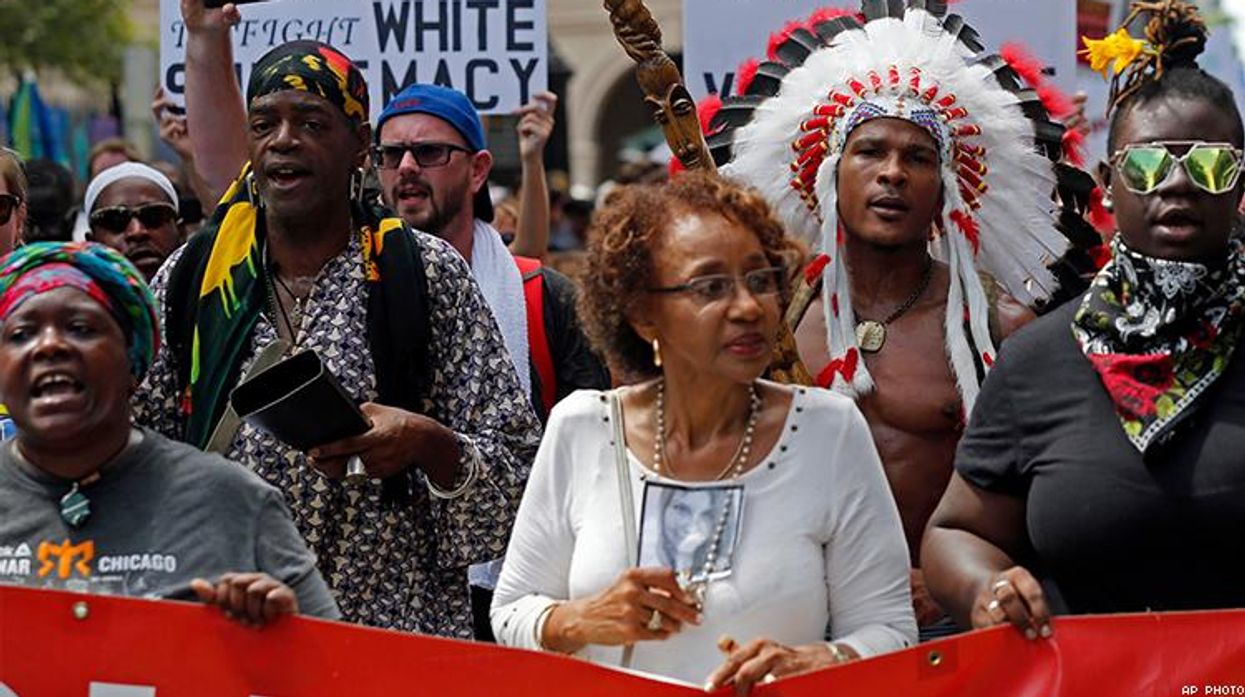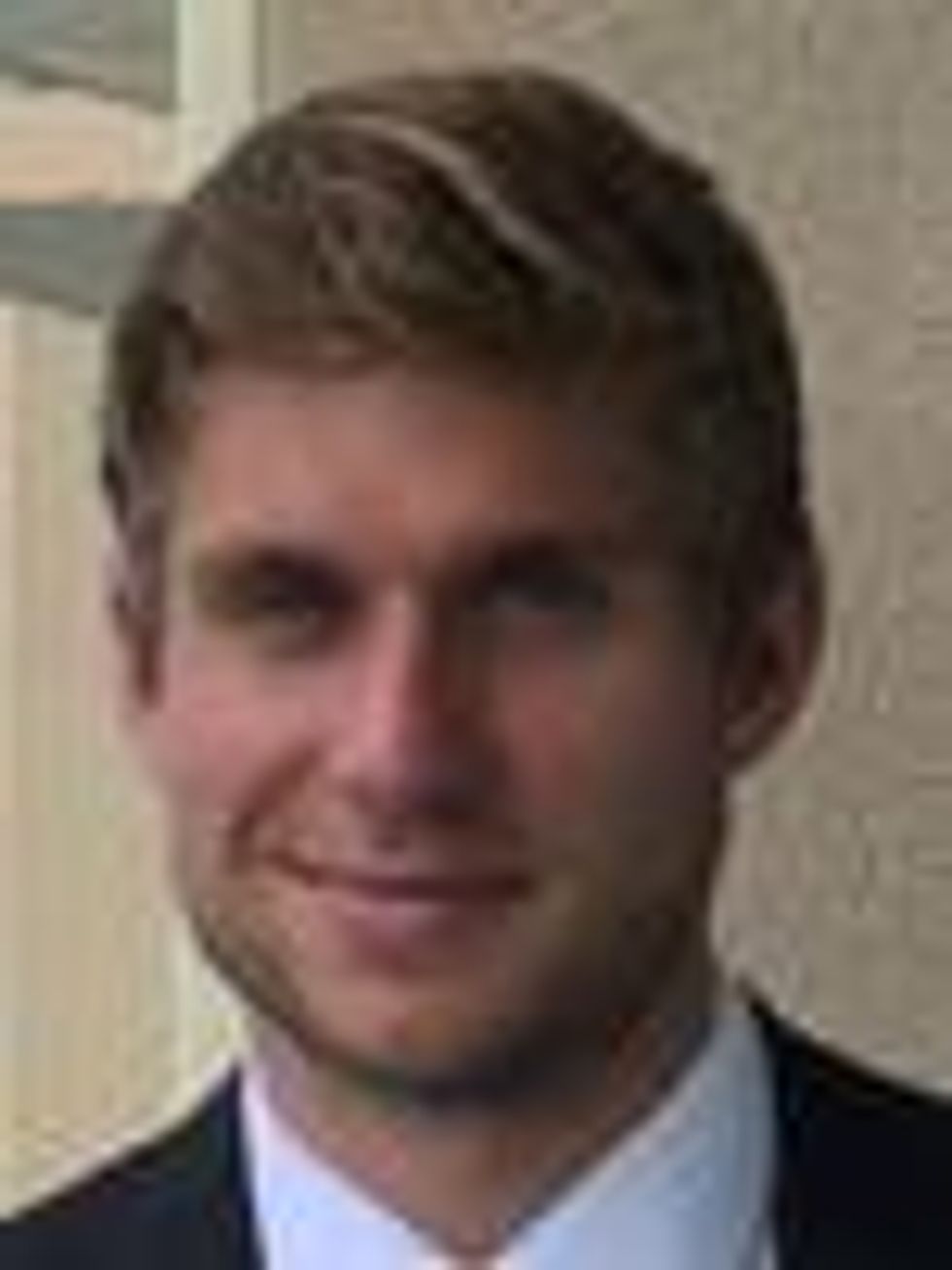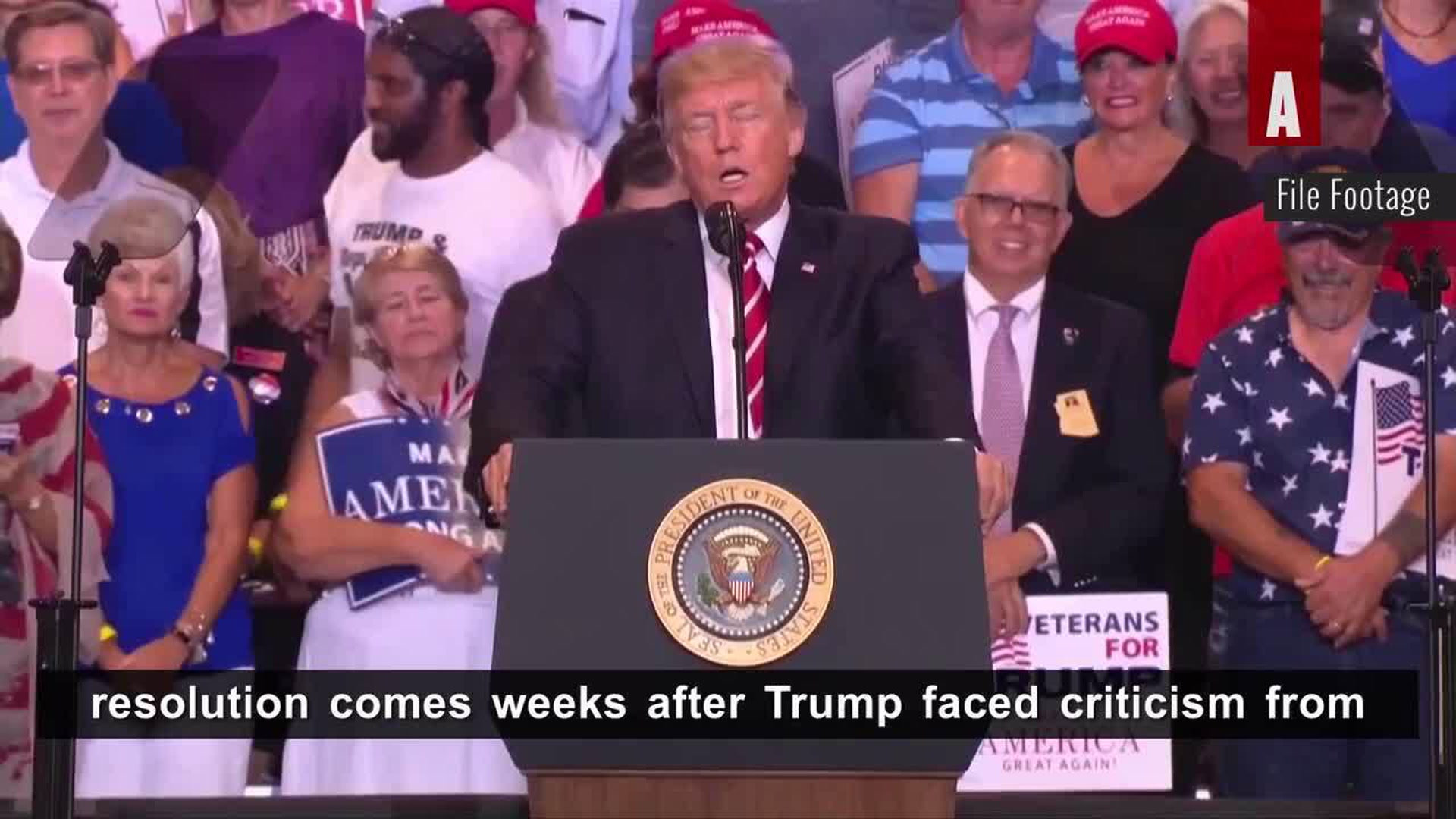Voices
One Month After Charlottesville, We Must Be Allies Every Day

If 2017 has proved anything, it's that racism, anti-Semitism, and homophobia have not gone away and that white privilege is real.
September 13 2017 5:43 AM EST
By continuing to use our site, you agree to our Privacy Policy and Terms of Use.

If 2017 has proved anything, it's that racism, anti-Semitism, and homophobia have not gone away and that white privilege is real.
Every day when I wake up and turn on the news, it's difficult to believe that a little under a year ago, Barack Obama was still president and a Hillary Clinton presidency was all but assured. I felt and dreamed that we were finally on an accelerating, if not still agonizingly slow, trajectory toward a more inclusive, tolerant society. That dream was shattered November 8, 2016.
For me personally as a white gay man, I've always considered myself incredibly lucky. I hadn't truly felt any of the emotional trauma -- let alone physical violence -- experienced by other members of the LGBTQ community and other marginalized communities. I never felt threatened or in danger in interactions with the police. I never found myself in situations where I couldn't hide my identity if I thought it would put me at any disadvantage. And while I didn't ignore or dismiss the hate coming out of the Trump campaign and increasingly vocal swaths of American society directed at people of color, immigrants, women, Muslims, Jews and the LGBTQ community, I was generally able to tune it out when I started to get overwhelmed or upset.
November 9, 2016, was the first day of my life that I felt unsafe because of my identity. There had been a homophobic incident on my block in Hell's Kitchen a few days before, reported by the New York City Anti-Violence Project, and I felt like I woke up in a different America.
Walking on the street to work that day, I couldn't pass by another person without wondering whether or not they could tell I was gay. Would they treat me differently because of my identity? Do I need to worry about physical violence, even here in Hell's Kitchen? What will be the long-term impact on my future? It was then that I realized that similar and worse thoughts, worries, and fears were front and center in the minds of so many less privileged members of the LGBTQ and other marginalized communities every waking minute of every single day. I got a tiny taste of the emotional stress that invariably takes an emotional, mental, economic and physical toll on one's wellbeing when it is a constant of daily life. I felt and still feel embarrassed and ashamed that it took the election of Donald Trump for me to truly appreciate the enormity of the privilege that I have enjoyed my entire life.
The recent neo-Nazi and white supremacist violence in Charlottesville, Va., brought back those visceral feelings. That day my social media almost instantaneously blew up, with my black friends calling on society, and especially white people, to start recognizing their privilege and paying attention to and fighting against the deeply entrenched hate, racism, and discrimination that permeates American society.
Then something I didn't expect happened. I saw straight white friends and family posting about Charlottesville -- most of them, I suspect, posting about racism and white privilege for the first time in their lives. To me it was a glimmer of hope that we may finally be getting to the point where we can have an open, honest conversation about the permanence and stubborn persistence of racism and oppression in our society. If it wasn't the deaths of so many unarmed black men at the hands of police or the murder of so many transgender people of color or anything else, maybe Charlottesville would be the catalyst for a societal conversation and change that are so long overdue.
Unfortunately, as time passes and news coverage shifts, people fall back into focusing on their daily routines and pressures. But if we ever hope to make progress toward full equality, the privileged among us can't stay silent. We can't let the events of Charlottesville or other incidents of racism and oppression fade to the back of our collective memory. We need to be the most active and vocal supporters of the vulnerable members of our society. We need to recognize and call out our privilege. We need to have those awkward and uncomfortable conversations. We need to use our privilege as a loudspeaker, joining and amplifying the chorus against hate and discrimination everywhere and in support of every marginalized community. And when we're tired of thinking and speaking about it, we need to remind ourselves that some people aren't just thinking about it, but experiencing racism, discrimination, and oppression every moment of every day of their lives.
What does this mean for an organization like AVP? It means we need to stand alongside people and organizations and movements that fight against hate and discrimination against all marginalized communities. We need to stand in support of Black Lives Matter. We need to stand in support of immigrants and Deferred Action for Childhood Arrivals recipients. We need to stand against the transgender military and Muslim immigration bans. Using our voice in solidarity with and in support of other oppressed groups is and has to be an integral part of our mission. AVP can never hope to end discrimination and violence within and toward the LGBT and HIV-affected communities until everyone -- minorities, immigrants, women, Muslims, Jews, and others -- are free from discrimination and violence.
The task ahead of us is monumental, and it is easy to feel overwhelmed and helpless. It's a lifetime of work. But as Camus once said, "life is the sum of all of your choices." If daily we choose to use our voice, our actions, and our privilege to combat discrimination and oppression, then a lifetime of work doesn't seem so impossible. And each and every day, we can all contribute in a small but incremental and ultimately powerful way to ending oppression in our society.


Charlie Kirk DID say stoning gay people was the 'perfect law' — and these other heinous quotes